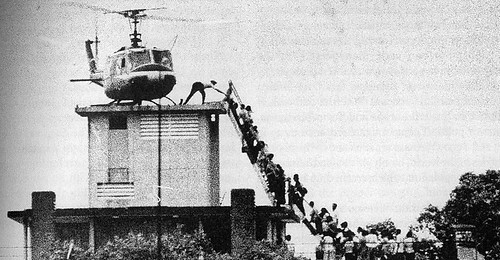Excuse me sir, I’m going to need to see a passport or some other proof of immigration status.
That should be the last thing we ever expect to hear from a police officer on a street corner. In fact, we should never have to worry about hearing it either. The latest legislation out of Arizona allows just that type of questioning though and puts police officers on the front lines of enforcing immigration and naturalization. It is fairly obvious that the law Arizona has passed will not stand up to Constitutional scrutiny and will eventually be thrown out. However, whether or not you agree with the law, it has done one very important thing, brought an issue unfamiliar to a large portion of the population to the front page. Immigration is a subject that people hear in passing or mentioned on the news occasionally, but for those not near a border, and in particular, the Mexican border, immigration is something not to be worried about. This is the wrong attitude. Immigration issues affect jobs, healthcare, education, and just about every other aspect of life, so we should be taking interest in what is happening in Arizona.
Living in Texas, New Mexico, Arizona, or California affords one the opportunity to see what illegal immigration in its current form is all about. You can step into an emergency room and see a number of people in this country illegally waiting for treatment, you can drive by the nearest strip center and see day laborers waiting for work, and you visit schools and talk to children who’s parents are migrant workers looking for the next employment opportunity. These scenes are around us everyday and they are becoming more common outside of border states. So how do we define “illegal immigrant”? They are someone who is in this country illegally, whether that be due to an expired visa or if they crossed the border without being documented.
A fact that will surprise many is that the fastest growing group of illegal immigrants is Indians, not Mexicans or Guatemalans. They are here for work and schooling and usually their illegal status is due to the overstaying of their visa. This does not make it any less of a problem, it simply means it is slightly less complicated. This leads me to my next point, which is that we have created some of this mess simply with the way our citizenship system works.
As the law stands now, a child born in the U.S. is a citizen of this country. The citizenship of the child’s parents does not come in to play at all. I am not suggesting that we change this, I just want to point out that our measure of citizenship creates a very ugly situation if we are to start deporting people left and right. Technically, the children would stay in the U.S. and would become wards of the state. We’ve now taken a slight burden of having a mom and dad illegally in the country and turned it into the state taking a child into foster care because of their parent’s immigration status. This seems to be an unsustainable way of dealing with the issue of citizenship and illegal immigration.
There has to be some way to solve this. During the large Italian emigration to the U.S. between 1870 and 1920 there was a very similar attitude toward immigrants, especially those suspected of coming here illegally, as there is today. The Italians flourished though and became a very welcome part of our country and part of that was due to their efforts to assimilate. They kept their customs but worked hard to become part of the communities that they lived in. This is a necessary step for illegal immigrants now, just as it was then. That means we need a way for those who are here illegally to become legal citizens. No, not amnesty, as that denigrates the hard work of those who have pursued legal citizenship. We need a system that allows illegal immigrants to get in line for citizenship and to begin to pay taxes, etc. My theory is that a large portion of the illegal population want to stay here and be legal citizens, they just don’t have a way to do it. If they do have that way, then we’ll have the opportunity to deport those who are here illegally by choice, who’s sole reason is criminal behavior.
While Arizona may have taken extreme steps to get a point across, it’s a point that’s necessary. Europe is struggling to handle their own illegal immigration issues and we have an opportunity to be a good example for what to do in response. People who emigrate here are the whole reason this country is great, but that does give the green light to sneaking into the country illegally. Let’s do the right thing and encourage Washington to seriously evaluate citizenship procedures and take the responsibility of enforcing the federal borders out of the state’s hands.


